#Renault-Nissan-MitsubishiAlliance
UN Panel Decides Japan Violated Carlos Ghosn's Human Rights
The United Nation Human Rights Council’s Working Group on Arbitrary Detention issued a report on Monday stating that Carlos Ghosn’s extended detention in Japan was an unacceptable infringement on his rights — adding that the matter would be forwarded to the UN’s rapporteur on torture, cruel and other inhuman or degrading treatment.
While there are undoubtedly larger examples of human rights abuses inside the automotive industry — Volkswagen’s apparent reliance on Chinese slave labor springs to mind — Japan’s bizarre treatment of the former head of the Renault-Nissan alliance garnered plenty of attention. Accused of financial crimes relating to the Japanese automaker he formally chaired and was once praised for saving, Ghosn was subjected to repeated arrests and strict limitations on who he was allowed to contact. Despite his having fled the country in a form befitting of a secret agent, the UN is still claiming his treatment ahead of the repeatedly delayed trial was tantamount to abuse.
Former Nissan Executive Pleads Not Guilty, Defends Ghosn
Greg Kelly, the American businessman and former Nissan board member that was arrested with ex-chairman Carlos Ghosn almost two years ago, has pleaded not guilty to the financial misconduct charges leveled against him in Japan. While he was supposed to stand trial with Mr. Ghosn, Carlos escaped his captors with the help of at least one U.S. Army Special Forces veteran and a lot of careful planning at the end of 2019. Kelly is accused of helping the former chairman hide millions of dollars in deferred compensation.
During the trial, he defended Ghosn by saying he was an outstanding automotive executive who helped save Nissan in its darkest hour. He also hinted that the firm should have done everything in its power to retain him, adding that his role was to find legal ways of keeping Ghosn from jumping ship to a rival company. While that included financial incentives, Kelly asserted during the trial that Nissan’s attorneys were always consulted before decisions were made and that no illegal actions were taken. “I informed Mr. Ghosn what could be done legally and what could not be done legally,” he told the court. “I believe the evidence will show that I did not violate the [financial] disclosure regulations.”
Renault Reports Staggering $8.6 Billion Loss
Already in the midst of a comprehensive restructuring plan with partners Nissan and Mitsubishi, Renault announced a staggering 7.29 billion euro ($8.6 billion) loss on Thursday. That tally encapsulates the first half of the year and marks a new record for the brand, even if it’s not the kind one normally celebrates.
“Although the situation is unprecedented, it is not final. Together with all of the Group’s management teams and employees, we are fully dedicated to correcting the situation through a strict discipline that will go beyond reducing our fixed costs,” new CEO Luca de Meo said in response to the dismal financial report. “Preparing for the future also means building our development strategy, and we are actively working on this. I have every confidence in the Group’s ability to recover.”
Nissan Predicts $4.5 Billion Operating Loss
Based on Mitsubishi’s bleak assessment of its own future, you might have thought it would be the automaker winning this week’s award for saddest economic forecast. But Nissan refused to be outdone. Having already warned the world that 2020 would prove harrowing even before anyone heard the term “COVID-19,” the brand now predicts an operating loss of 470 billion yen ($4.5 billion USD).
Nissan likewise estimates total revenue declining by one-fifth through year’s end to 7.8 trillion yen ($74.1 billion) as its worldwide vehicle sales continue a longstanding retreat.
While it’s difficult to know what to peg these losses on, there are a few obvious suspects. Both automakers sacrificed their identities as automakers in order to spend years trying to expand globally, with a particular focus on developing countries and bland models assumed to have mainstream appeal. Nissan even re-launched the Datsun name as an affordable alternative in places like India, but it wasn’t the sales success the company envisioned.
Nissan's CEO Explains Recovery Plan to Angry Investors
Nissan CEO Makoto Uchida attempted to smooth things over with investors last week by going over his company’s new recovery plan in great detail. As you undoubtedly know by now, the automaker found itself in a less than blissful situation following an ugly internal power struggle that highlighted corporate corruption and a business strategy that seemed like a liability without ideal economic circumstances and the man who penned it running the show.
With its share price already suppressed by worsening sales performance and assumed “management issues” with alliance partner Renault, the internal scandal kicked off by the arrest of former chairman Carlos Ghosn November 2018 is what really sent Nissan’s stock into a tailspin. Shares have lost more than half their value since the incident.
This placed Uchida in the undesirable position of having to explain what went wrong and how to fix it. In the past, Uchida said he’d happily be fired if he can’t turn things around, though that’s usually what happens to CEOs who can’t deliver (or need to be scapegoated and sacrificed on the alter of commerce by their board). Based on comments made at the company’s most recent shareholder meeting, Uchida seems to understand how things work.
“I said, ‘If Nissan’s performance does not improve, please fire me. Please dismiss me,’ ” he reminded the crowd on June 29th. “That’s what I said. And this policy remains unchanged.”
Report: Ghosn Actually Does Appear to Have Been Set Up
Carlos Ghosn’s claim that he was the target of an industrial coup is looking a lot more valid this week after emails surfaced showing a high degree of internal organization regarding his ousting and subsequent criminal charges. The former head of the Renault-Nissan-Mitsubishi Alliance was infamous for wanting further integration within the pact. In fact, his aim was to make sure the tie-up became “irreversible.”
That idea never quite landed for Nissan leadership and Japanese shareholders, with many already holding the view that the alliance had already given French interests too much authority.
Emails dating back nearly one year before Ghosn’s November 2018 arrest clearly indicate top-level management at Nissan had a strong aversion to deepening ties with Renault. While understandable to a large degree, it’s counter to the claim that his removal was strictly about under-reported income and other financial malfeasance that were of particular interest to Tokyo prosecutors. At the very least, some actors at Nissan wanted to make sure the alliance patriarch suffered a massive loss of face while confronting allegations.
Nissan and Renault Divvy Up Production Responsibilities
Nissan and Renault opted against a full merger on Wednesday, but neither side seemed to feel now was the time to disband the alliance and see how they might fare as a solo act. Every member of the Renault–Nissan–Mitsubishi Alliance took time to address financial concerns last year, encouraging further product integration as a cost-mitigation strategy. Despite Nissan shareholders and staff clearly losing interest in the French-led confederation, the brand seems to understand that leaning upon its allies might be the only way to get through a period of increasing economic uncertainty.
Mitsubishi slashed its 2020 financial forecasts ahead of the coronavirus pandemic by over $500 million while the other two issued numerous profit warnings in the latter half of 2019. Now the world is exiting lockdowns and assessing the economic damage they caused. Obviously, this is not the time to be burning bridges, even if some alliance partners aren’t enthralled with what’s probably waiting on the other side.
Renault Ends Chinese Partnership, Looks for a New Start
With the rippling economic effects of the coronavirus outbreak starting to take hold, some industry analysts have begun floating the increasingly popular theory that various markets could stage a retreat from China. While the Chinese Communist Party’s mishandling of the pandemic — including cover-ups (and the possible manipulation of the World Health Organization) that ultimately encouraged the virus’ spread — are often cited as the impetus for the change, the actual decisions will be largely economic. COVID-19 threatens countless nations’ financial welfare as it simultaneously disrupts global supply chains.
The virus has also sent the auto industry into a holding pattern as manufacturers and suppliers hemorrhage money. While the assumption exists that this situation could encourage international automakers to refocus on domestic production, there haven’t been many examples to point to. Renault changed that this week, announcing plans to abandon its joint venture with China’s Dongfeng Motor Corporation. The move, however, may have less to do with the presumed industrial exodus than the company’s general financial situation.
Give Us Ghosn: Japan's Deputy Justice Minister Heads to Lebanon
Japanese Deputy Justice Minister Hiroyuki Yoshiie reportedly traveled to Lebanon this past weekend in an attempt to convince Carlos Ghosn to give up his life on the lam and head back to Tokyo to stand trial. Considering the defamed automotive executive fled the country because he was positively convinced this would end in a conviction, we probably won’t need to issue any follow-up reports about how the meeting ended.
Ghosn has repeatedly stressed his belief that Japan aided Nissan in ousting him from the company and has no interest in giving him a fair trial — calling it a “hostage justice” system.
Of course, all the real negotiating will be done by proxy through Lebanese Justice Minister Albert Serhan, with the pair scheduled to meet on Monday. Ghosn won’t actually be in attendance, but you had better believe he’ll be interested in the play-by-play recap. With his mind already made up on the matter, Japan will need to focus on persuading Serhan.
French Government Warns Renault Against Job Cuts, Factory Closures
Last week, Renault reported its first significant loss in a decade (€141 million) and a 3.3-percent decline in annual sales for 2019. It now expects a flat 2020 and claims it needs to commit itself to a €2 billion restructuring program over the next three years. Alliance partner Nissan also anticipates a weak year, and is doubling down on its own restructuring efforts by showcasing an eagerness to do whatever it takes to restore profitability.
However, the French government wants Renault to slow down and think about things before it starts shuttering local factories. Owner of a 15-percent stake in the automaker, it doesn’t wish to see its investment doing anything embarrassing. As such, French Finance Minister Bruno Le Maire warned the company to be exceedingly careful with how it handles business in France, urging it to avoid any measures that might negatively impact domestic employment rates.
Would You See the Carlos Ghosn Movie?
Internationally wanted fugitive and former automotive executive Carlos Ghosn has reportedly teamed up with Michael Ovitz, founder of Creative Artists Agency and ex-president of Walt Disney, to handle the movie or miniseries that’s definitely going to be made about his flight from Japan.
Ghosn could probably use the money, as he’s accustomed to the finer things in life. He forfeited $15 million in bail money when he skipped town, plus whatever it costs to hire an elite team of mercenaries to smuggle you halfway around the world.
New Arrest Warrants Issued for Carlos Ghosn and Accomplices
Tokyo prosecutors have issued warrants for the arrest of Carlos Ghosn and three Americans they claim helped him escape the country in December. His surprise arrival in Lebanon initially befuddled Japanese authorities, prompting the country to file a red notice with Interpol before releasing the latest warrant.
While a new development in the Ghosn saga, it doesn’t change much. The former executive still faces charges of financial misconduct stemming from his tenure with Nissan, but he now finds himself charged with violating Japan’s Immigration Control Law.
Japan’s take is that Ghosn fled the country to avoid justice (a backwards version of his own view). The former automotive executive and his wife, who is also wanted in Japan, have both stated publicly that they believe the country’s legal system would never allow Ghosn a fair trial, claiming officials worked with Nissan to help enact the industrial-grade coup that removed him.
French Fix: Renault Board Selects Next CEO
Renault has appointed the former boss of Volkswagen Group’s Seat brand, Luca de Meo, as its new chief executive. Eager to remove former CEO Thierry Bollore and further distance itself from any ties to Carlos Ghosn, the company has been without an official leader since October.
The automaker made an announcement Tuesday, saying that after a selection process led by the Governance and Compensation Committee, the Board of Directors under the chairmanship of Jean-Dominique Senard had settled on de Meo.
Clotilde Delbos, currently serving as interim CEO, will continue to assume her functions until Luca takes office at the beginning of July. Viewed as the most-likely successor since 2019, de Meo was simply waiting out the non-compete clause in his contract with VW. His official hiring still needs approval from Renault shareholders, with the next meeting taking place in April.
Nissan and Renault Chief Engineers to Meet, Rekindled Joint Projects on the Agenda
Anybody with more than a casual interest in the automotive industry will tell you the relationship between Nissan and Renault is falling apart. Even the alliance’s founder, executive-on-the-run Carlos Ghosn, says it’s on the cusp of going under. But existing employees have tried to be a little more optimistic, acknowledging that the business partnership has become strained while making suggestions to correct its course.
One plan involves pushing more collaborative projects, which is one of the main reasons for forming an industrial alliance. Renault Chairman Jean-Dominique Senard has already said both sides are committed to making the partnership succeed, citing joint projects as a primary focus. Alliance engineers will meet in Japan at the end of January to discuss new development programs — and attempt to revive a few that fell by the wayside.
Nissan Working on Contingency Plan in Case Things Go South With Renault
Despite Nissan and Renault spending much of 2019 attempting to reassure the world that their 20-year relationship was soundly intact, fractures have been impossible to hide from the public. If you want an analogy, imagine a carton of milk being left to curdle near a radiator and someone attaching a post-it note that reads “fine for drinking.”
While legitimate efforts to fix the relationship have been made (parts sharing, more collaborative projects, management changes, etc.), a lot of it has been undercut by the Renault-Nissan-Mitsubishi Alliance attempting to cleanse itself of the old guard — many of whom had ties to former alliance chair Carlos Ghosn. At the same time, Nissan has sought autonomy from the French automaker, enacting corporate reforms to give it a bit more independence. It also has a cogency plan ready in the event it has to break from Renault entirely; reportedly, Nissan’s been updating that strategy ever since Ghosn escaped Japanese custody last month.





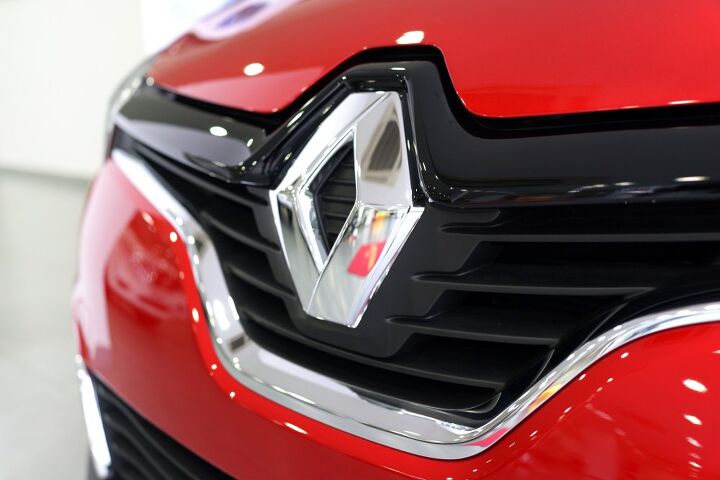


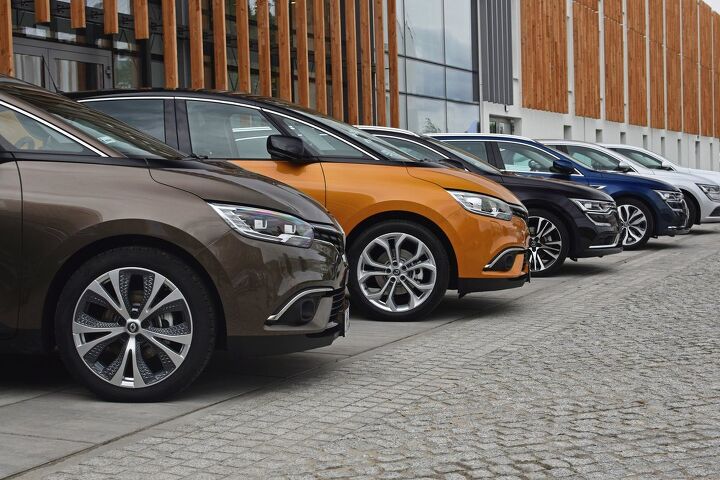
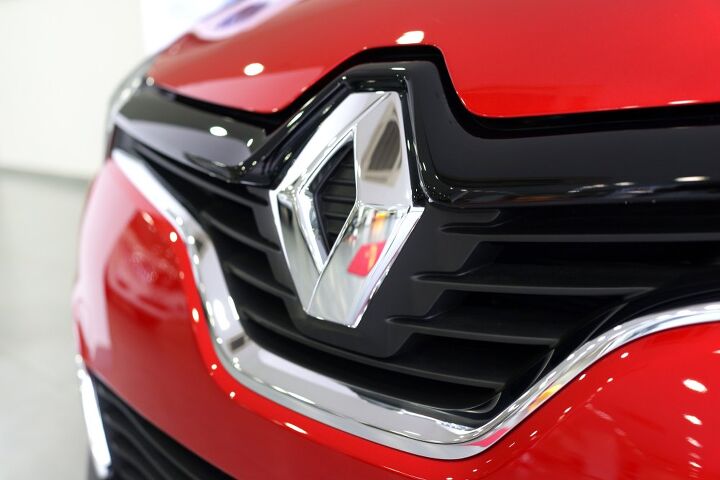
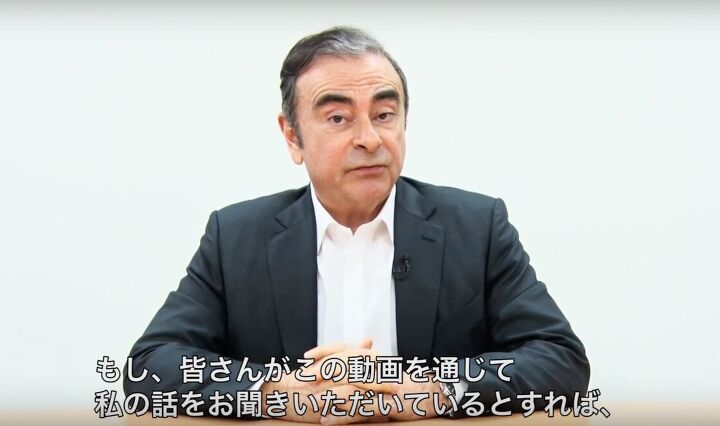
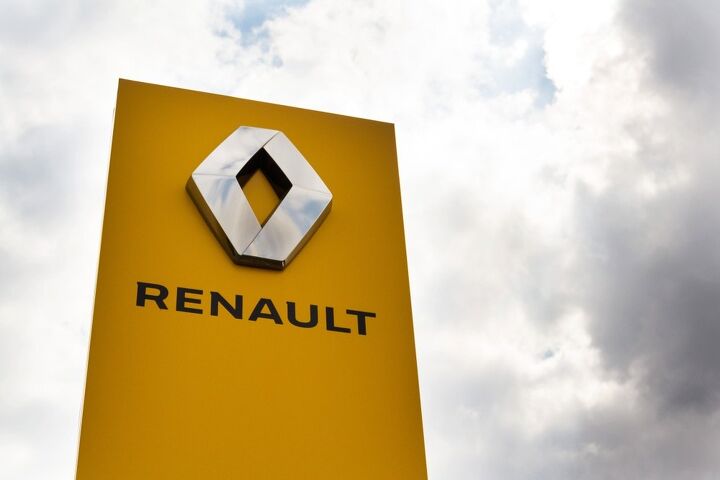
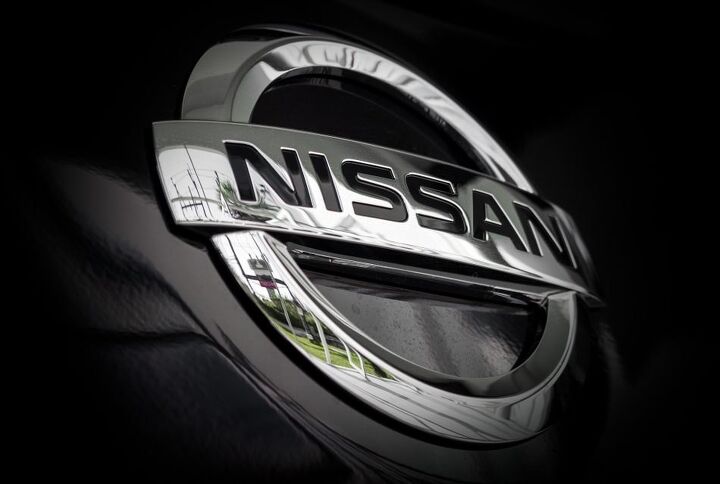












Recent Comments